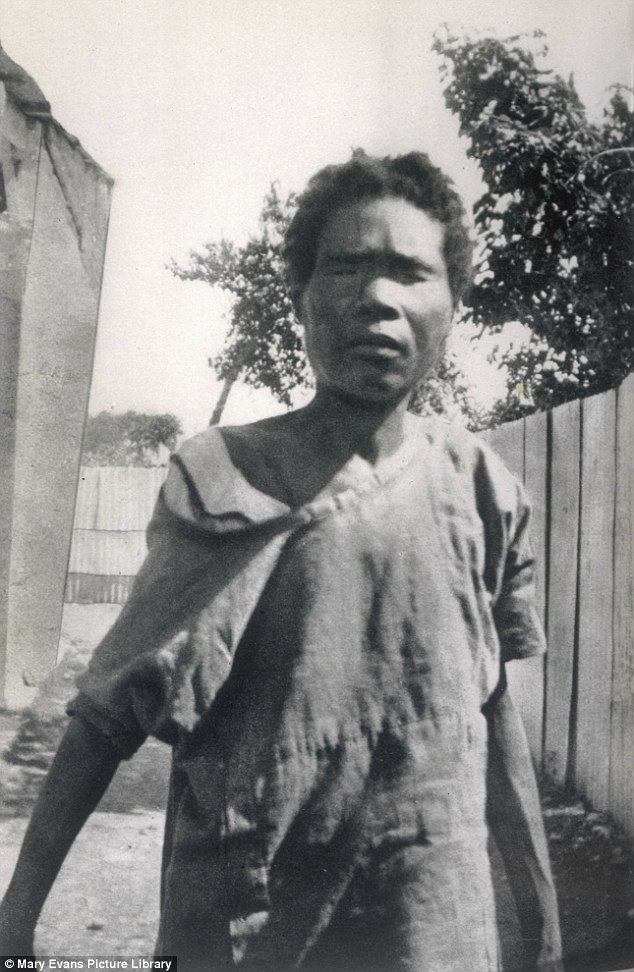The Common Misconception: George A. Romero and the Origin of the Zombie
In modern culture, the zombie myth is often credited to George A. Romero, the director who revolutionized the horror genre in 1968 with Night of the Living Dead. However, the concept of the undead existed long before cinema. While it is true that Romero reshaped the archetype of the zombie, turning it into a flesh-eating, mindless creature, the original idea has much older roots, linked to Haitian voodoo and the belief that humans could be enslaved even after death.
One of the most fascinating real-life cases supporting this belief is that of Félicia Felix-Mentor.
The Encounter with the Haitian Zombie
In 1937, during a research trip to Haiti to study voodoo, Zora Neale Hurston came across a shocking case. She was introduced to a woman in a trance-like state, with a blank stare and rigid movements. Dressed in rags, she seemed to have no awareness of the world around her.
Locals claimed that this woman was Félicia Felix-Mentor, who had supposedly died in 1907. Even her own relatives, after their initial shock, recognized her. But how was this possible? The only explanation provided by the villagers was that a bokor (a voodoo sorcerer) had turned her into a zombie, bringing her back from the dead to enslave her.

Zora Neale Hurston
Voodoo and the Zombie Myth
In Haitian voodoo, the concept of the zombie is very different from what Hollywood portrays. They are not decaying corpses craving human flesh, but rather individuals stripped of their will and turned into slaves through secret rituals. According to voodoo belief, a bokor can capture a person’s soul, making them completely dependent and obedient.
But could there be a real scientific explanation for this phenomenon?
The Tetrodotoxin Hypothesis: Science Behind the Zombie Phenomenon
In the 1980s, anthropologist and ethnobotanist Wade Davis sought to uncover the science behind the Haitian zombie phenomenon. In his book The Serpent and the Rainbow, Davis proposed that certain bokors used a mysterious powder to induce a death-like state.
This zombie powder allegedly contained tetrodotoxin, a powerful neurotoxin extracted from pufferfish, which can drastically slow heart rate and respiration, making a person appear dead. After being buried alive and later exhumed, the victim would remain in a state of disorientation and suggestibility, further controlled by hallucinogenic substances like datura.
Real Zombies or Cultural Suggestion?
While Davis’ theory fascinated many, the scientific community remains skeptical. There is no definitive proof that tetrodotoxin alone can induce a state of living death, nor that datura can create permanent zombie-like obedience. Some anthropologists argue that the zombie phenomenon is a mixture of cultural conditioning and mental illness, amplified by strong Haitian voodoo beliefs.
In the case of Félicia Felix-Mentor, no official documents confirm her 1907 death, leaving open the possibility that she was simply a neurologically or psychiatrically ill woman, misidentified as a zombie.
Myth, Reality, or Something More?
The case of Félicia Felix-Mentor remains an unsolved mystery. Was she truly a victim of voodoo rituals, or just a woman suffering from mental illness, mistakenly believed to be one of the walking dead?
One thing is certain: the Haitian zombie legend has left a lasting impact on popular culture, inspiring movies, books, and countless theories. And while cinema has made us accustomed to hordes of flesh-eating zombies, the reality might be even more unsettling: what if it were possible to break a person’s will so completely that they become a living automaton?
Do you find the world of voodoo and zombies fascinating? Share your thoughts in the comments and stay tuned for more eerie mysteries!
Sources and Further Reading:
- Zora Neale Hurston, Tell My Horse: Voodoo and Life in Haiti and Jamaica (1938)
- Wade Davis, The Serpent and the Rainbow (1985)
- Anthropological studies on Haitian voodoo and zombie rituals
- Wikipedia - Zora Neale Hurston
- Daily Mail - Félicia Felix-Mentor Case








Leave a Comment